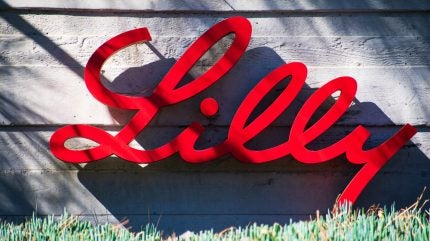
Eli Lilly’s Kisunla (donanemab) will not yet be made available to Alzheimer’s patients in the UK after the National Institute for Health and Care Excellence (NICE) said it doesn’t demonstrate good value for UK’s NHS.
On 23 October, the UK’s Medicines and Healthcare products Regulatory Agency (MHRA) granted approval to the therapy for the treatment of mild cognitive impairment or mild dementia due to Alzheimer’s disease in some adults. This follows on from the US Food and Drug Administration (FDA)’s green light in July 2024.

Discover B2B Marketing That Performs
Combine business intelligence and editorial excellence to reach engaged professionals across 36 leading media platforms.
However, NICE, which acts as the UK’s price watchdog, said that although the monthly injection slows disease progression by four to seven months, as demonstrated in the Phase III TRAILBLAZER-ALZ 2 (NCT04437511) study, there are “significant uncertainties about how much benefit donanemab provides, and how long this lasts for after stopping treatment”. It also said that more evidence is needed on the clinical and cost-effectiveness of Kisunla.
A NICE committee also explained that one-third of patients in the trial had signs of brain swelling or brain bleeding, as determined by amyloid-related imagining abnormalities (ARIAs). Similar concerns were raised in the FDA’s June 2024 advisory committee convened to discuss the drug’s approval. Patients in Lilly’s trial were closely monitored due to this, with MRIs done at four, 12, 24, 52, and 76 weeks in addition to allowing for unscheduled MRIs at investigator discretion. This frequent monitoring can rack up increased costs for payers, as well as bringing up accessibility issues.
In the announcement accompanying the decision, Helen Knight, director of medicines evaluation at NICE said: “The cost-effectiveness estimate for donanemab is 5 to 6 times above what NICE normally considers an acceptable use of NHS resources.”
In the US, Kisunla has a price tag $695.65 per vial. This means that the cost of treatment for a six and 12 month-plan would amount to $12,522 and $32,000, respectively.

US Tariffs are shifting - will you react or anticipate?
Don’t let policy changes catch you off guard. Stay proactive with real-time data and expert analysis.
By GlobalDataKisunla isn’t the only Alzheimer’s therapy on the market. Eisai and Biogen’s Leqembi (lecanemab) secured UK approval in August 2024, but NICE published a separate draft guidance that said it leans against reimbursing the drug. Leqembi has an annual cost of $26,500 per year in the US, and its infusions are administered every two weeks for a minimum of 18 months. In July, Leqembi faced rejection from the European Medicines Agency (EMA) , while the agency is continuing to review Kisunla.
Kisunla and Leqembi are monoclonal antibodies that work by targeting and clearing amyloid beta plaques from the brain, aiming to slow early cognitive decline by reducing toxic buildup linked to the disease. It is estimated that around 70,000 adults in England would have been eligible for treatment with Kisunla, according to NICE.




